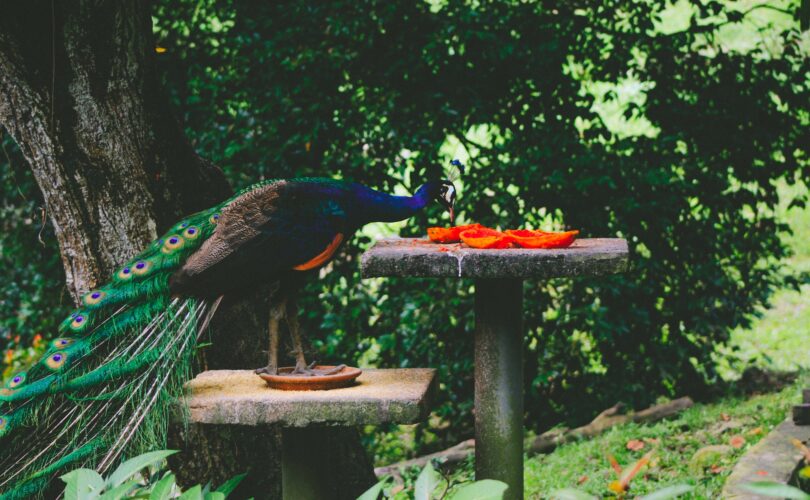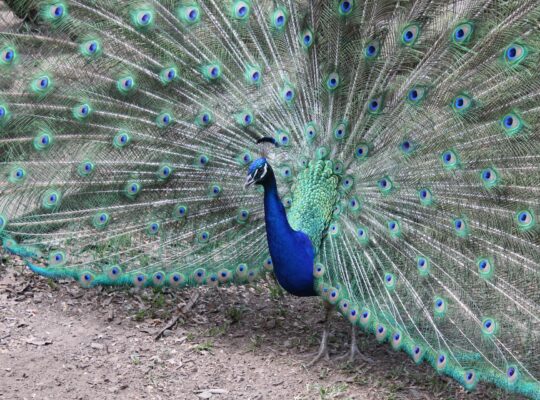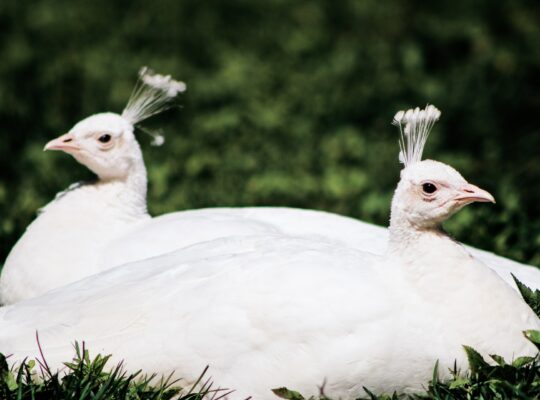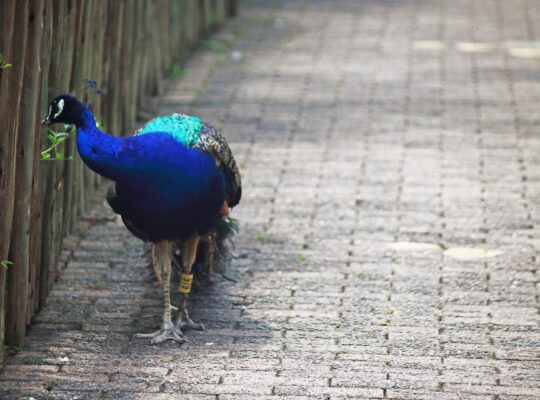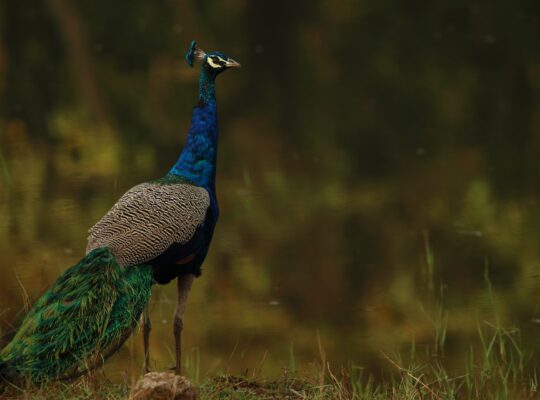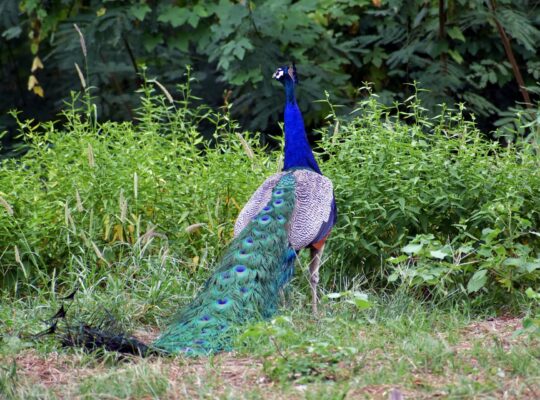Peacocks are omnivores, meaning they can consume grains, fruits, vegetables, insects, and small animals. Bread is a grain-based meal that may be served to peacocks, although there are better choices than this.
Wheat flour, abundant in carbs but lacking nutrients, makes bread. Peacocks need a well-balanced diet rich in protein, fat, fiber, vitamins, and minerals to maintain their health and well-being. Bread as a large portion of a peacock’s diet might result in malnutrition and health concerns.
Another disadvantage of feeding bread to peacocks is that it might affect their digestive tract. Bread is often heavy in salt, sugar, and preservatives, which may disrupt the delicate bacterial balance in the peacock’s stomach. This might cause digestive issues, including bloating, diarrhea, and constipation. Moreover, bread’s high carbohydrate content may contribute to obesity, leading to various health issues, including heart disease, joint difficulties, and lung problems.
Feeding bread to peacocks may have environmental consequences. Bread is often used to lure birds to public parks and ponds. However, this may lead to bird overfeeding and congestion. Overfeeding may increase bird droppings, which can pollute water and transmit illness.
If you give bread to peacocks, be sure to do so in moderation and provide a balanced diet with other items. Whole-grain bread with reduced salt, sugar, and preservatives is preferable to white bread. It is also critical not to give moldy or stale bread since it might contain toxic compounds that can make the peacock unwell.
Peacocks should eat the following foods:
1. Fruits and vegetables: Peacocks love a range of fruits and vegetables, including apples, pears, grapes, melons, carrots, and leafy greens. These meals are high in nutrients, fiber, and water, which may aid in the health of the peacock’s digestive system.
2. Peacocks may consume a range of cereals, including maize, oats, and barley. These grains are richer in protein and fiber than wheat flour, making them more nutritious.
3. Insects: Since peacocks are natural bug eaters, they may benefit from a diet rich in insects like mealworms, crickets, and grasshoppers. These meals are abundant in protein, which is essential for the growth and development of the peacock.
4. Peacocks may consume meat and eggs, such as cooked chicken or boiled eggs. These meals are protein-rich and may provide the peacock with vital amino acids.
Although peacocks may consume bread, there are better meals for them. Bread is poor in nutrition, heavy in carbs, and may disturb the peacock’s digestive tract. Feeding bread to peacocks may also cause environmental issues such as overfeeding and water contamination.
Providing a well-balanced diet that includes fruits, vegetables, grains, insects, and meat is critical. If you give bread to peacocks, do it sparingly and as part of a balanced diet.
What Should You Not Feed A Peacock?
Peacocks are intriguing and beautiful birds that many people adore. Because of their bright plumage and elegant motions, they are a popular attraction in zoos, parks, and gardens. But, to feed a peacock, you must know which foods to avoid. Although peacocks are omnivores and may consume a wide range of foods, certain things can damage their health. Let’s review the top 10 foods you should never feed a peacock.
1. Avocado harms birds, causing respiratory distress, lethargy, and death. Avocado contains persin, which may cause heart damage, respiratory difficulties, and digestive issues in birds.
2. Chocolate includes theobromine, a chemical that is poisonous to birds. Even modest doses of chocolate may induce vomiting, diarrhea, hyperactivity, convulsions, and death in birds.
3. Caffeine: Caffeine may stimulate the central nervous system, causing convulsions, heart palpitations, and death in birds. Avoid offering peacocks coffee, tea, energy drinks, or other caffeine-containing items.
4. Alcohol is poisonous to birds, causing respiratory discomfort, despair, and even death. Avoid offering alcoholic drinks or meals containing alcohol to peacocks.
5. Salty Foods: Peacocks should avoid salty meals since they might cause dehydration, renal difficulties, and digestive issues. Give peacocks no chips, pretzels, or salty food.
6. Processed Foods: Peacocks should avoid processed meals with preservatives, additives, and artificial components. Certain meals may be difficult to digest, resulting in digestive issues and malnutrition. Avoid feeding peacocks fast food, junk food, or other highly processed items.
7. Spoiled or Moldy Food: Peacocks should not be fed spoilt or moldy food since it may contain hazardous germs or poisons that may make the bird unwell.
8. Raw Meat or Eggs: Peacocks may consume cooked meat and eggs but should avoid raw meat or eggs. Raw meat and eggs may contain hazardous germs such as Salmonella, which may cause stomach difficulties, infections, and even death.
9. Peacocks may consume seeds and nuts in moderation. Seeds and nuts are heavy in fat, which may contribute to obesity and other health issues if consumed excessively.
10. Bread: Although peacocks may consume bread, it should be provided in moderation and as part of a balanced diet. Bread is poor in nutrients and heavy in carbs, which may cause stomach issues and malnutrition if consumed in excess.
In conclusion, if peacocks are given the wrong kinds of food, this may have major repercussions for their health. It is essential to provide a well-balanced diet that contains a wide range of foods, including fruits, vegetables, grains, meat, and insects, among other things.
It is important not to feed your peacock any items that might be harmful to them, such as those that are heavy in salt or sugar, processed, or stale. You can help guarantee that your peacock will always be happy and healthy if you provide it with a nutritious diet and steer clear of anything damaging.

